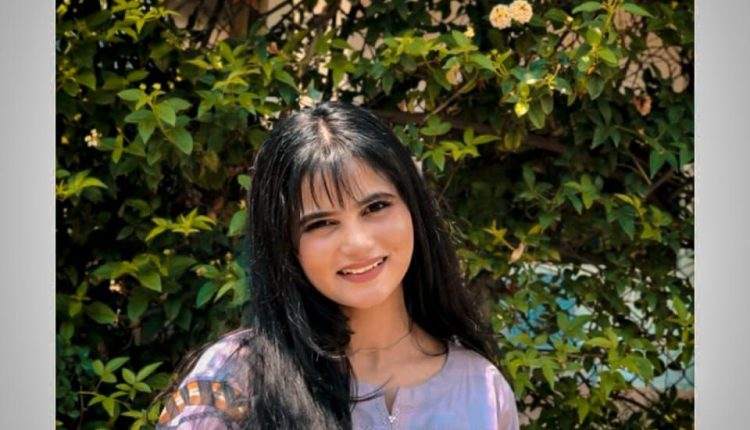For more than 70 years, the Kashmir conflict has cast a shadow of violence and insecurity on people’s lives. Among the many tragic aspects of this ongoing conflict is the tragic act of enforced disappearance. Enforced disappearance is a serious human rights violation involving the abduction of an individual by the State or State-affiliated agents, leaving families in a constant state of anxiety and fear. In this context, the psychological impact of enforced disappearances on families in Kashmir is a serious issue that requires attention.
The haunting phenomenon of enforced disappearances first emerged in Indian Occupied Jammu & Kashmir in 1989. The region, home to an unprecedented deployment of occupation forces—exceeding eight hundred thousand personnel, the highest number of troops in peacetime anywhere in the world—witnessed a dark turn in the campaign against Kashmiris. This occupation, unfortunately, brought with its various forms of human rights violations, including extra-judicial executions, custodial deaths, torture in custody, sexual assaults, forced labor, and perhaps one of the most distressing aspects: enforced disappearances.
The heavy-handed approach of the occupation forces, fueled by a pervasive suspicion towards every Kashmiri, has led to a relentless cycle of arrests and subsequent torture, spanning over the past 3 decades. This distressing reality has cast a long shadow over the lives of non-combatant Kashmiris, leaving families grappling with uncertainty and despair.
The trauma inflicted on families in IoJK by enforced disappearances is profound and multifaceted. Even before the events of August 2019, the Kashmir Valley was showing signs of severe emotional distress. Constant exposure to traumatic events, economic downturns and the breakdown of traditional support systems leaves people highly vulnerable to psychological stress. MSF’s 2015 Kashmir Mental Health Survey highlights a staggering number of victims, showing equally high prevalence of depression, anxiety disorders and post-traumatic stress disorder in women and men.
The sudden disappearance of a family member causes great grief and emotional turmoil. Families struggle with waves of emotions such as sadness, despair, anger, and helplessness, often resulting in prolonged grief. For women, the impact is even more pronounced, as the burden of social norms and history increases their emotional vulnerability.
In the midst of this tragedy, families in Kashmir are showing remarkable resilience. Despite the lingering sense of loss, they band together and draw strength from their common cultural practices and beliefs. Community support networks such as the Muhalla Committee provide emotional and financial support, organize funerals, and demonstrate the power of solidarity in the face of adversity.
In IoJK, art, poetry, and music have evolved into powerful sources of healing and emotional relief for Kashmiris. These creative forms of expression have become therapeutic tools, enabling Kashmiris to share their pain and embark on a journey of recovery. Through art, they paint their feelings, in poetry, they pour their hearts out, and in music, they find solace. These creative outlets act as both a release for their pent-up emotions and a touching tribute to their loved ones who have passed away, a way of keeping their memory alive in the face of adversity.
Religion holds a profound place in the hearts of Kashmiris, providing them with comfort and hope amidst the turmoil. Faith becomes a guiding light in difficult times, offering them a sense of meaning and purpose. Religious gatherings and ceremonies play a pivotal role in the community, providing spaces for collective mourning and reinforcing unity among people who share a common faith. Despite the constant challenges that Kashmiris face, their spirituality serves as an unwavering source of strength and resilience, reminding them that even in the darkest moments, there is light to be found in their faith and in each other.
Kashmiri families do not passively endure their plight. They are taking action against enforced disappearances. Organizations like the Association of Relatives of the Disappeared (APDP) provide a platform for family voices to be heard around the world. Ms. Parveena Ahangar’s tireless efforts underscore the resilience and unwavering determination of these families to seek justice, often in the harshest of circumstances.
However, it’s important to remember that this strength doesn’t mean they are free from pain. It’s a sign of their resilience, but it’s also a call for us to step in and help. The people of Kashmir urgently need psychological support and resources to cope with the lasting effects of enforced disappearances. Horrible human rights violations related to enforced disappearances must be recognized and condemned at the international level. Governments and international organizations should take joint action to ensure accountability for these crimes and establish transparent investigative mechanisms.
The writer is a student of International Relations at International Islamic University, Islamabad and is currently serving as an intern at Kashmir Institute of International Relations.

